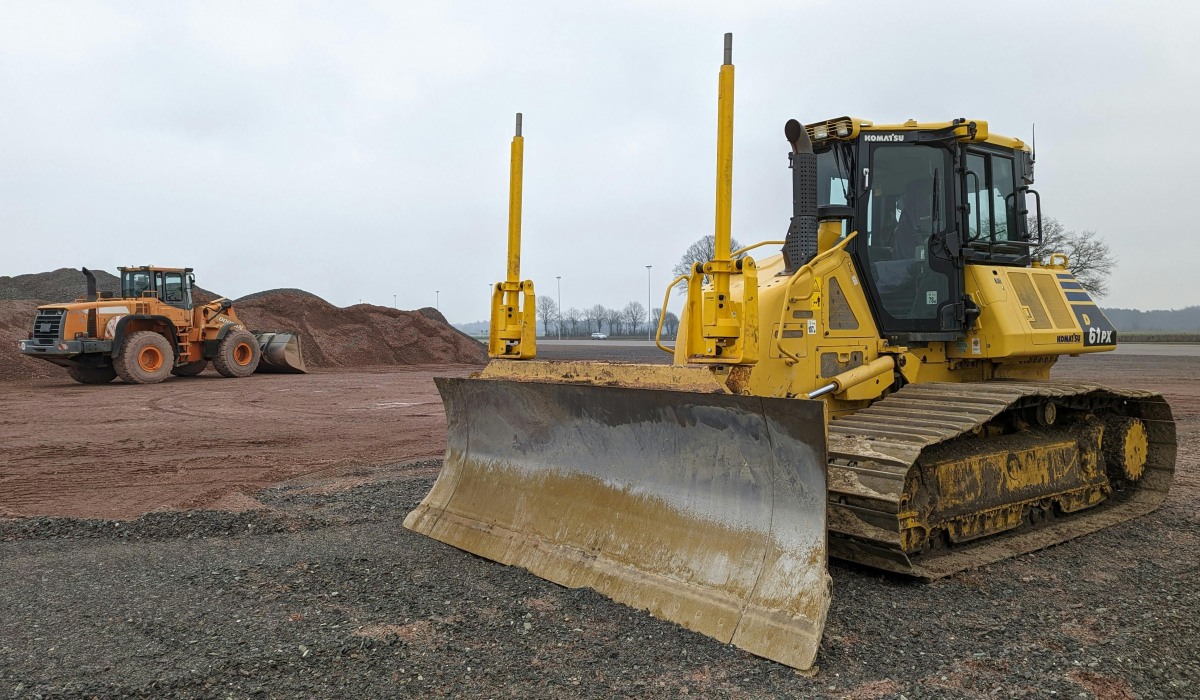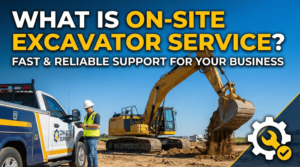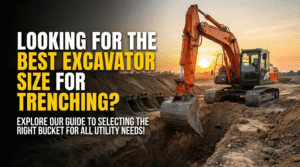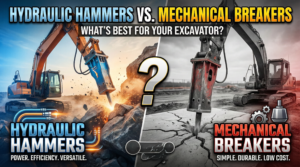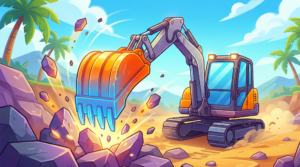When dealing with tasks that demand intense effort, two powerful machines usually cross our minds: mini excavators and skid steer loaders. Although both are fairly similar in terms of versatility and power, each one is intended for a specific use and performs better in specific circumstances. Therefore, when implementing a compact construction equipment unit in your next project, you are very likely to have to choose between the two options. This guide focuses on the strengths and weaknesses of each machine to support you in making the right decision and achieving more.
What is a Mini Excavator?
A mini excavator is an excavator, but smaller and more compact compared to a regular heavy-duty one. Most commonly in the 1 to 8-tonne category, it usually weighs between 2000 and 18000 lbs. Despite its small size, a mini excavator offers good digging depths, reach, and lifting capacities. It typically involves hydraulic-powered tracks that help it maneuver through cramped spaces and rough terrain. Other than that, it features a hydraulic arm with a bucket on the other side. This helps a mini excavator scoop and move dirt and other materials.
Another salient characteristic is the rotating cab. This avoids any blind spots or guesswork, giving the operator a complete 360-degree view of the work site, thereby making the entire experience all the more safe and accurate.
Read more: How Mini Excavators Improve Efficiency in Tight and Urban Spaces
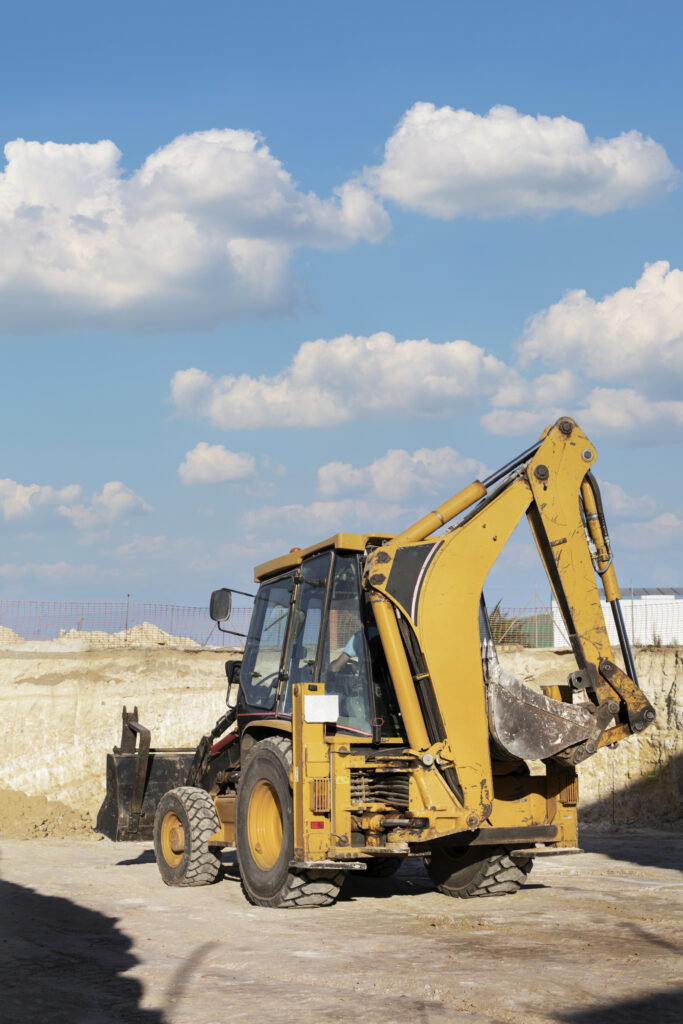
Strengths:
- Compact size and maneuverability
- Versatility in tight spaces
- Precise digging and excavation capabilities
- Low operating costs
- Ideal for urban or residential projects
- Easy to transport and store
- Reduced soil disturbance
- Increased accuracy with attachments
- Suitable for small to medium-sized projects
- Environmentally friendly
Read more: Top 5 Excavator Attachments for Landscapers
Weaknesses:
- Limited lifting capacity
- Slow travel speeds
- May require additional support for heavy loads
- Operator skill level may impact performance
- Not suitable for large-scale projects
- Limited reach and depth capabilities
- Requires regular maintenance
Applications:
- Digging: Random construction, which includes trenches, foundations, and holes for pipes, cables, and other accessories
- Excavation: Clearing of ground and surfaces to make them free from soil, dirt, and debris.
- Demolition: Crushing concrete, asphalt, and other comparable materials.
- Grading: Flattening or planning of surfaces in order to make them even.
- Lifting: transporting large loads frequently, including pipelines, materials, and equipment.
- Placing: Locating various items like pipes, culverts, and other structures.
- Site preparation: Includes tasks such as clearing vegetation, removing other waste materials, and preparing grounds for building projects.
Read more: Tips to Choose the Perfect Mini Excavator for Your Project
What is a Skid Steer?
A mini-skid steer is another versatile machine. It is designed to take up physically involved and qualitative jobs in construction, landscape, utility work, etc. The prefix ‘mini’ can be viewed as quite meaningful, as it directly points to the fact that such machines are not as large and massive as full-scale models. Like a mini-excavator, a mini skid steer is specially made to maneuver in narrow or restricted areas that regular full-size machinery cannot easily reach. They are also capable of moving sideways at one spot. This makes them ideal in urban settings and indoor sites with spatial constraints.
The compact size of mini skid steers gives them better efficiency, as they can accomplish multiple assignments in a short time and are easy to navigate. To make the most of their capabilities, numerous attachments can be used with them.
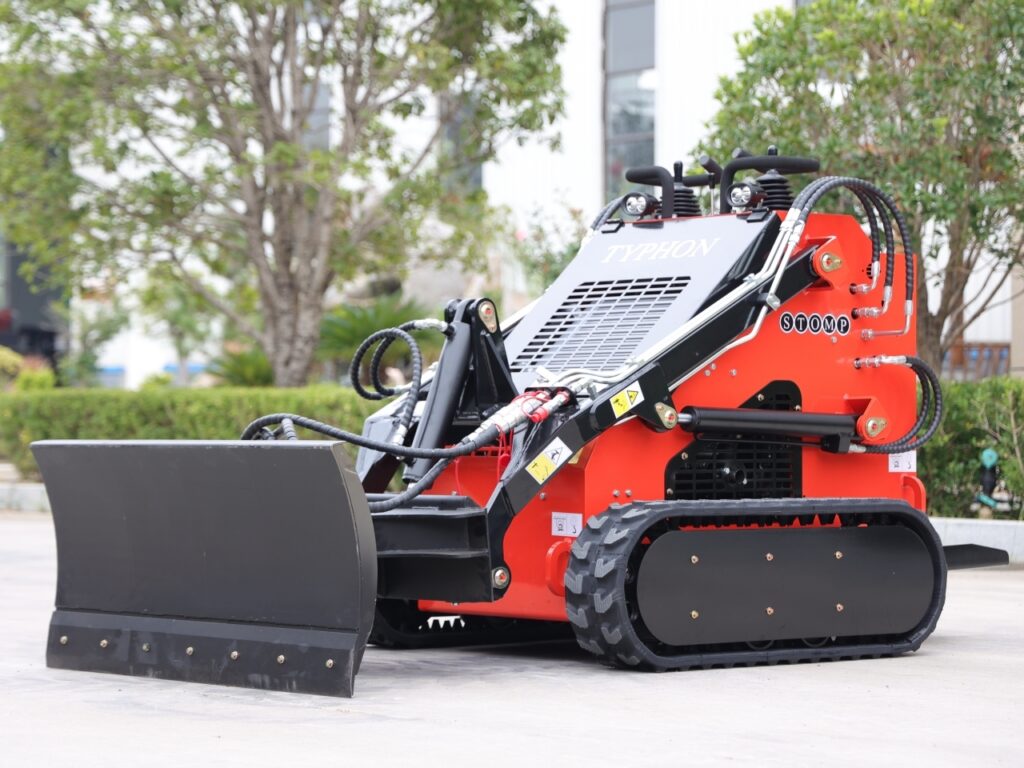
Strengths:
- High lifting capacity and payload
- Fast travel speeds and productivity
- Several attachment options
- Versatility in various tasks
- Suitable for heavy-duty construction and landscaping
- Can handle demanding terrain and conditions
- High torque and breakout force
- Easy to operate and maintain
- Cost-effective
Weaknesses:
- Larger size and reduced maneuverability
- Higher operating costs
- Complexity of operation
- Requires more space for operation and storage
- Maintenance costs can be higher
- May require specialized training
- Not suitable for tight spaces or urban areas
- Can be heavy on fuel consumption
Applications:
- Loading and moving materials: dirt, sand, gravel, debris, and more
- Digging and excavation: trenches, foundations, and other digging tasks
- Lifting and placing: heavy objects, such as pipes, pallets, and construction materials
- Grading and leveling: soil, gravel, and other surfaces
- Demolition and breaking: concrete, asphalt, and other materials
- Landscaping and site preparation: clearing, grading, and preparing land for development
- Snow removal: plowing, blowing, and hauling snow
- Attachment operation: using various attachments like buckets, forks, hydraulic hammers, and more.
Which one is right for your project?
When it comes down to it, choosing the right equipment for your construction project directly depends on the nature of your work and what you are looking to achieve from your machine.
Skidsteers are multi-purpose. With a wide range of attachments, they are almost ready for everything. Their compact design makes them perfect for squeezing into tight spaces and jobs where you need to tread lightly. On the other hand, mini excavators are excellent for trenching and excavation tasks. These powerful machines can handle bigger jobs with ease. Great for working at heights or extending lengths, mini excavators excel in demolition work and large-scale landscaping.
Still unsure? Consider this: For residential projects, your best option could be a skid steer. Their user-friendly nature reduces the chance of damaging the surrounding area. If your job involves a lot of digging, go for a mini-excavator. Although they come with a higher price tag and require extra attention, they are unparalleled when it comes to serious excavation work.
At American Excavator, we offer a wide selection of both skid steers and mini excavators, along with their attachments. Contact us now for personalized advice on the perfect, cost-effective solution for your needs! Remember, the right tool makes all the difference. Let’s find yours together!

